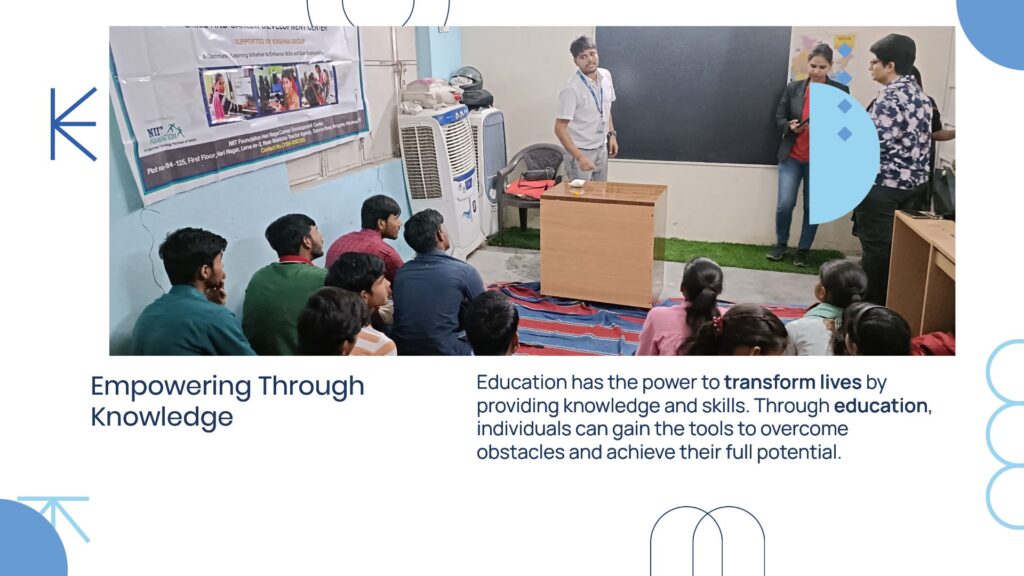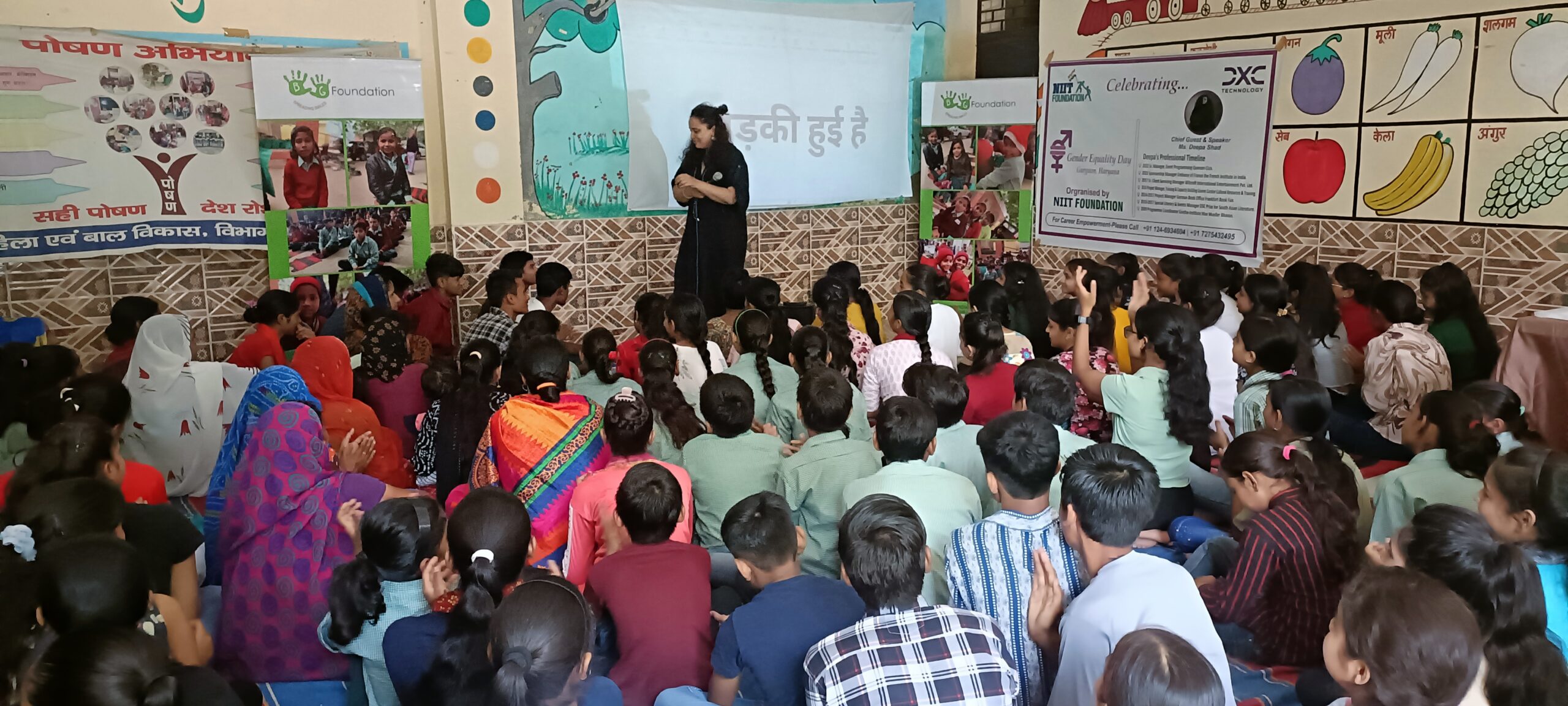
Leading the Way: Developing Essential Leadership Skills in Today’s Youth
Acquiring leadership skills is crucial for the development of today’s youth as they prepare to assume leadership roles in society. These skills not only facilitate personal and professional growth but also empower young individuals to make a positive impact on their communities and the world at large. By fostering leadership skills in young people, we are investing in the future of our society, ensuring that we have capable and responsible leaders to navigate the challenges that lie ahead.
One of the primary reasons why leadership skills are essential for youth development is that they promote self-awareness and confidence in young individuals. Through leadership development, young people gain a deeper understanding of their strengths and weaknesses, enabling them to leverage them to achieve their objectives. This self-awareness is vital for personal growth and success, as it allows young people to make informed decisions about their lives and take responsibility for their actions.
Furthermore, leadership skills also help young people develop resilience and adaptability, which are essential qualities for navigating the complexities of the modern world.
Key Takeaways
- Leadership skills are essential for the development of today’s youth
- Mentoring plays a crucial role in nurturing future leaders
- Building confidence, resilience, and critical thinking abilities are important for youth leaders
- Empowering youth to take initiative and lead by example is key
- Creating opportunities for youth to practice and refine leadership skills is crucial
Strategies for Cultivating Leadership Skills in Young People
Providing Opportunities for Leadership Roles
One effective approach to cultivating leadership skills in young people is to provide them with opportunities to take on leadership roles in various settings, such as in school clubs, sports teams, or community organizations. By giving young people, the chance to lead, they can develop important skills such as communication, teamwork, and problem-solving, which are essential for effective leadership.
Mentorship and Guidance
Additionally, providing young people with mentorship and guidance from experienced leaders can also help them to develop their leadership abilities. Mentors can offer valuable insights and support to young people as they navigate the challenges of leadership and can serve as role models for them to emulate.
Experiential Learning Opportunities
Another important strategy for cultivating leadership skills in young people is to provide them with opportunities for experiential learning. This can include activities such as volunteering, internships, or participating in leadership development programs. By engaging in real-world experiences, young people can apply their leadership skills in practical situations and gain valuable insights into their strengths and areas for growth. Experiential learning also helps young people to develop critical thinking and decision-making abilities, as they learn to navigate complex challenges and make informed choices.
The Role of Mentoring in Nurturing Future Leaders
Mentoring plays a crucial role in nurturing future leaders by providing young people with guidance, support, and encouragement as they develop their leadership skills. A mentor can offer valuable insights and advice to young people based on their own experiences, helping them to navigate the challenges of leadership and develop a deeper understanding of their own abilities. Additionally, mentors can serve as role models for young people, demonstrating the qualities and behaviours of effective leaders that they can aspire to emulate.
Mentoring also provides young people with a supportive relationship that can help them to build confidence and resilience as they develop their leadership skills. By having a mentor who believes in them and encourages them to take on new challenges, young people can develop a sense of self-assurance and determination that is essential for effective leadership. Furthermore, mentors can provide young people with constructive feedback and guidance that helps them to learn from their experiences and grow as leaders.
Building Confidence and Resilience in Youth Leaders
Confidence and resilience are essential qualities for effective leadership, and it is important to cultivate these qualities in young people as they develop their leadership skills. Building confidence in youth leaders involves providing them with opportunities to take on new challenges and succeed in their endeavours. By experiencing success in their leadership roles, young people can develop a sense of self-assurance and belief in their abilities, which is crucial for effective leadership.
Additionally, providing youth leaders with positive reinforcement and recognition for their achievements can help to build their confidence and motivation to continue developing their leadership skills. Resilience is another important quality for youth leaders to develop, as it enables them to navigate the inevitable challenges and setbacks that come with leadership roles. To build resilience in youth leaders, it is important to provide them with support and encouragement when they face difficulties and help them to learn from their experiences.
By developing resilience, youth leaders can learn to bounce back from setbacks and continue to pursue their goals with determination and perseverance.
Fostering Critical Thinking and Decision-Making Abilities
Critical thinking and decision-making abilities are essential for effective leadership, and it is important to foster these skills in young people as they develop their leadership abilities. Critical thinking involves the ability to analyse information, evaluate different perspectives, and make informed judgments about complex issues. By fostering critical thinking in youth leaders, we enable them to approach challenges with a thoughtful and analytical mindset, which is essential for effective leadership.
Decision-making abilities are also crucial for youth leaders to develop, as they are often required to make important choices that impact the individuals they lead and the organizations they are a part of. By providing youth leaders with opportunities to practice making decisions in various contexts, we enable them to develop their decision-making abilities and learn from their experiences. Additionally, providing youth leaders with mentorship and guidance from experienced leaders can help them to develop their decision-making abilities by learning from the insights and experiences of others.
Empowering Youth to Take Initiative and Lead by Example
Developing Leadership Skills through Ownership and Responsibility
Empowering youth to take initiative and lead by example is crucial for developing their leadership skills. By encouraging young people to take ownership of their actions and make positive contributions to their communities, we enable them to develop a sense of agency and responsibility that is essential for effective leadership. Adult leaders can also demonstrate the qualities and behaviours they want to see in youth leaders by leading by example, serving as role models for them to emulate.
Providing Opportunities for Youth to Lead
Empowering youth to take initiative involves providing them with opportunities to lead projects or initiatives that are meaningful to them. By giving young people, the chance to take on leadership roles in areas they are passionate about, we enable them to develop a sense of purpose and motivation that drives them to excel as leaders.
Supporting Youth Leaders in Their Pursuits
Providing youth leaders with support and resources to pursue their initiatives can help them develop the skills and confidence they need to succeed in their endeavours. By doing so, we can empower youth to take initiative and lead by example, ultimately developing the next generation of effective leaders.
Creating Opportunities for Youth to Practice and Refine Leadership Skills
Creating opportunities for youth to practice and refine their leadership skills is essential for their development as future leaders. By providing young people with opportunities to take on leadership roles in various settings, such as in school clubs, sports teams, or community organizations, we enable them to apply their skills in practical situations and gain valuable insights into their strengths and areas for growth. Additionally, providing youth leaders with mentorship and guidance from experienced leaders can help them to learn from the insights and experiences of others.
Another important aspect of creating opportunities for youth leaders is providing them with access to training and development programs that help them to refine their leadership skills. By participating in programs that focus on areas such as communication, teamwork, problem-solving, and decision-making, youth leaders can gain valuable knowledge and insights that enable them to excel in their roles. Additionally, providing youth leaders with opportunities for experiential learning through activities such as volunteering, or internships can help them to apply their leadership skills in real-world situations and gain practical experience that enhances their abilities.
Leading the Way: Developing Essential Leadership Skills in Today’s Youth
Acquiring leadership skills is crucial for the development of today’s youth as they prepare to assume leadership roles in society. These skills not only facilitate personal and professional growth but also empower young individuals to make a positive impact on their communities and the world at large. By fostering leadership skills in young people, we are investing in the future of our society, ensuring that we have capable and responsible leaders to navigate the challenges that lie ahead.
One of the primary reasons why leadership skills are essential for youth development is that they promote self-awareness and confidence in young individuals. Through leadership development, young people gain a deeper understanding of their strengths and weaknesses, enabling them to leverage them to achieve their objectives. This self-awareness is vital for personal growth and success, as it allows young people to make informed decisions about their lives and take responsibility for their actions.
Furthermore, leadership skills also help young people develop resilience and adaptability, which are essential qualities for navigating the complexities of the modern world.
Key Takeaways
- Leadership skills are essential for the development of today’s youth
- Mentoring plays a crucial role in nurturing future leaders
- Building confidence, resilience, and critical thinking abilities are important for youth leaders
- Empowering youth to take initiative and lead by example is key
- Creating opportunities for youth to practice and refine leadership skills is crucial
Strategies for Cultivating Leadership Skills in Young People
Providing Opportunities for Leadership Roles
One effective approach to cultivating leadership skills in young people is to provide them with opportunities to take on leadership roles in various settings, such as in school clubs, sports teams, or community organizations. By giving young people, the chance to lead, they can develop important skills such as communication, teamwork, and problem-solving, which are essential for effective leadership.
Mentorship and Guidance
Additionally, providing young people with mentorship and guidance from experienced leaders can also help them to develop their leadership abilities. Mentors can offer valuable insights and support to young people as they navigate the challenges of leadership and can serve as role models for them to emulate.
Experiential Learning Opportunities
Another important strategy for cultivating leadership skills in young people is to provide them with opportunities for experiential learning. This can include activities such as volunteering, internships, or participating in leadership development programs. By engaging in real-world experiences, young people can apply their leadership skills in practical situations and gain valuable insights into their strengths and areas for growth. Experiential learning also helps young people to develop critical thinking and decision-making abilities, as they learn to navigate complex challenges and make informed choices.
The Role of Mentoring in Nurturing Future Leaders
Mentoring plays a crucial role in nurturing future leaders by providing young people with guidance, support, and encouragement as they develop their leadership skills. A mentor can offer valuable insights and advice to young people based on their own experiences, helping them to navigate the challenges of leadership and develop a deeper understanding of their own abilities. Additionally, mentors can serve as role models for young people, demonstrating the qualities and behaviours of effective leaders that they can aspire to emulate.
Mentoring also provides young people with a supportive relationship that can help them to build confidence and resilience as they develop their leadership skills. By having a mentor who believes in them and encourages them to take on new challenges, young people can develop a sense of self-assurance and determination that is essential for effective leadership. Furthermore, mentors can provide young people with constructive feedback and guidance that helps them to learn from their experiences and grow as leaders.
Building Confidence and Resilience in Youth Leaders
Confidence and resilience are essential qualities for effective leadership, and it is important to cultivate these qualities in young people as they develop their leadership skills. Building confidence in youth leaders involves providing them with opportunities to take on new challenges and succeed in their endeavours. By experiencing success in their leadership roles, young people can develop a sense of self-assurance and belief in their abilities, which is crucial for effective leadership.
Additionally, providing youth leaders with positive reinforcement and recognition for their achievements can help to build their confidence and motivation to continue developing their leadership skills. Resilience is another important quality for youth leaders to develop, as it enables them to navigate the inevitable challenges and setbacks that come with leadership roles. To build resilience in youth leaders, it is important to provide them with support and encouragement when they face difficulties and help them to learn from their experiences.
By developing resilience, youth leaders can learn to bounce back from setbacks and continue to pursue their goals with determination and perseverance.
Fostering Critical Thinking and Decision-Making Abilities
Critical thinking and decision-making abilities are essential for effective leadership, and it is important to foster these skills in young people as they develop their leadership abilities. Critical thinking involves the ability to analyse information, evaluate different perspectives, and make informed judgments about complex issues. By fostering critical thinking in youth leaders, we enable them to approach challenges with a thoughtful and analytical mindset, which is essential for effective leadership.
Decision-making abilities are also crucial for youth leaders to develop, as they are often required to make important choices that impact the individuals they lead and the organizations they are a part of. By providing youth leaders with opportunities to practice making decisions in various contexts, we enable them to develop their decision-making abilities and learn from their experiences. Additionally, providing youth leaders with mentorship and guidance from experienced leaders can help them to develop their decision-making abilities by learning from the insights and experiences of others.
Empowering Youth to Take Initiative and Lead by Example
Developing Leadership Skills through Ownership and Responsibility
Empowering youth to take initiative and lead by example is crucial for developing their leadership skills. By encouraging young people to take ownership of their actions and make positive contributions to their communities, we enable them to develop a sense of agency and responsibility that is essential for effective leadership. Adult leaders can also demonstrate the qualities and behaviours they want to see in youth leaders by leading by example, serving as role models for them to emulate.
Providing Opportunities for Youth to Lead
Empowering youth to take initiative involves providing them with opportunities to lead projects or initiatives that are meaningful to them. By giving young people, the chance to take on leadership roles in areas they are passionate about, we enable them to develop a sense of purpose and motivation that drives them to excel as leaders.
Supporting Youth Leaders in Their Pursuits
Providing youth leaders with support and resources to pursue their initiatives can help them develop the skills and confidence they need to succeed in their endeavours. By doing so, we can empower youth to take initiative and lead by example, ultimately developing the next generation of effective leaders.
Creating Opportunities for Youth to Practice and Refine Leadership Skills
Creating opportunities for youth to practice and refine their leadership skills is essential for their development as future leaders. By providing young people with opportunities to take on leadership roles in various settings, such as in school clubs, sports teams, or community organizations, we enable them to apply their skills in practical situations and gain valuable insights into their strengths and areas for growth. Additionally, providing youth leaders with mentorship and guidance from experienced leaders can help them to learn from the insights and experiences of others.
Another important aspect of creating opportunities for youth leaders is providing them with access to training and development programs that help them to refine their leadership skills. By participating in programs that focus on areas such as communication, teamwork, problem-solving, and decision-making, youth leaders can gain valuable knowledge and insights that enable them to excel in their roles. Additionally, providing youth leaders with opportunities for experiential learning through activities such as volunteering, or internships can help them to apply their leadership skills in real-world situations and gain practical experience that enhances their abilities.



